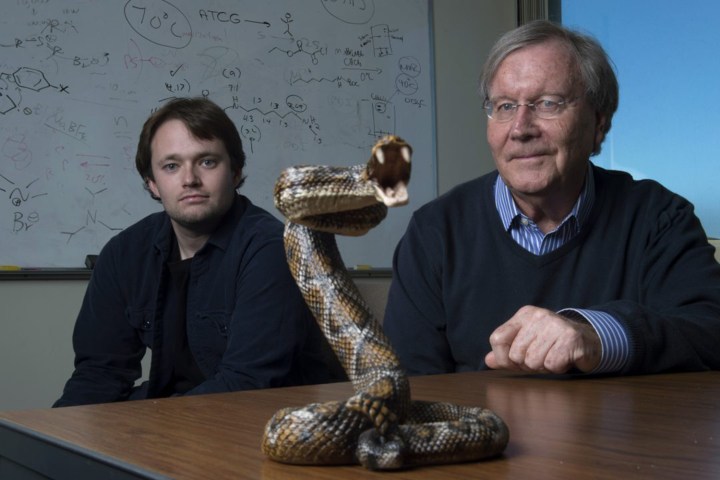
But new research from a team of chemists at the University of California, Irvine suggests antivenom can be fabricated more easily and cheaply than it is in conventional methods, potentially saving tens of thousands of lives each year. The team has published a paper detailing the study in the Journal of the American Chemical Society.
“Our antidote is prepared in the chemistry laboratory,” Ken Shea, senior author of the study, told Digital Trends. “It is not biological.”
Traditionally, antidotes are produced by injecting venom into large mammals, such as horses, and letting the animal build up antibodies to fight off the toxins. After a few weeks, the animal’s blood is collected, isolated, and purified before being shipped off to regions that can afford it.
“It is a lengthy and expensive process and it is species specific,” Shea explained. “Our materials have the potential to function across multiple species of snakes and can be produced without biological contamination.”
Together with doctoral student and lead author Jeffrey O’Brien, Shea created a polymer nanogel material that can bind to certain protein toxins that exist in such snakes as cobras and pit vipers. By binding to these proteins, the nanogel keeps them from rupturing red blood cells. The treatment costs “pennies on the dollar,” compared to existing treatments, according to Shea.
The chemists have also begun testing similar antidotes against spider and scorpion venom, which they said has returned promising results. They’re now looking to conduct clinical trials.


